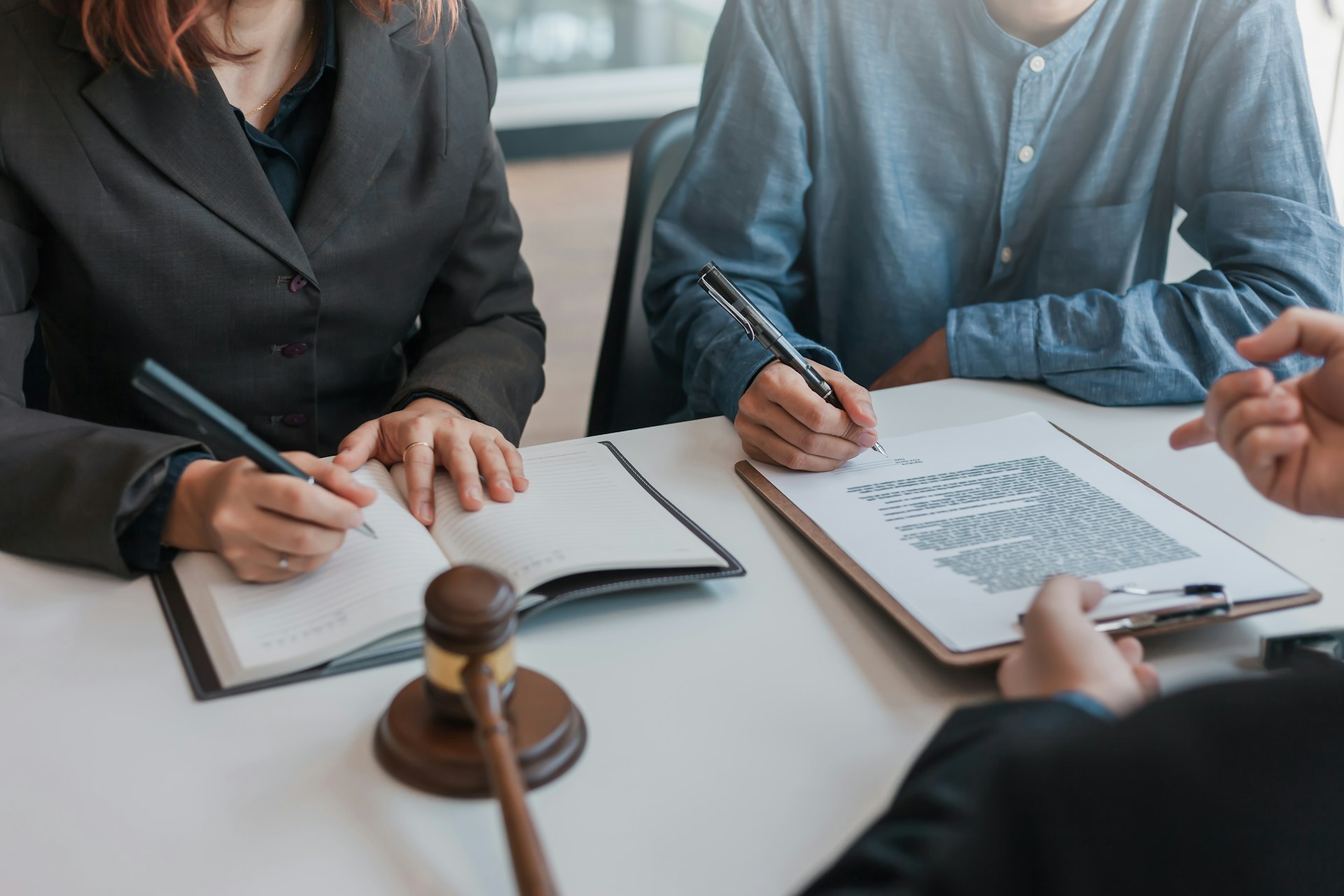The aftermath of an accident or injury can be a challenging and confusing time. If you’ve suffered harm due to someone else’s negligence, you may be considering pursuing a personal injury claim. This comprehensive guide will walk you through the intricacies of how personal injury claims work, from initial consultation to final settlement.
Such claims encompass a wide range of scenarios, including workplace accidents, road traffic collisions, medical malpractice, and more. While each case is unique, understanding the general process can help you navigate this complex legal landscape with greater confidence.
Determining Eligibility for a Personal Injury Claim
Before embarking on the claims process, it’s crucial to establish whether you have grounds for a case. Generally, you may be eligible to pursue a personal injury claim if:
- You sustained an injury within the last three years
- The incident resulting in your injury was caused wholly or partially by another party
- You can demonstrate that the other party owed you a duty of care
- You have evidence to support your claim
It’s important to note that there are exceptions to the three-year time limit, particularly in cases involving children or individuals lacking mental capacity. In such instances, different rules may apply, and it’s advisable to seek legal counsel from a personal injury attorney in Indianapolis (or elsewhere) for clarification.
Types of Personal Injury Claims
Personal injury claims can arise from various situations. Some common categories include:
- Road traffic accidents
- Workplace injuries
- Slips, trips, and falls in public places
- Medical negligence
- Industrial diseases
- Product liability cases
Each type of claim may have specific legal considerations and requirements, which is why it’s crucial to consult with a specialized personal injury solicitor like Braker White Injury Lawyers or similar others, who can provide tailored advice based on your circumstances.
Assessing the Strength of Your Claim
To determine the viability of your case, it is best to employ the services of a personal injury solicitor as they have the skill to evaluate several important factors:
- The severity and long-term impact of your injuries
- The circumstances surrounding the incident
- Available evidence to support your claim
- The likelihood of establishing liability
- Potential value of compensation
This initial assessment helps both you and your legal representative make an informed decision about proceeding with the claim.
Initiating the Claims Process
Once it has been determined that you have a valid claim, the next step is to formally begin the legal process. This typically involves the following stages:
Seeking Legal Representation
While it’s possible to handle a personal injury claim independently, most individuals choose to work with a specialized solicitor. A knowledgeable legal professional can:
- Provide expert guidance throughout the process
- Handle complex paperwork and legal procedures
- Negotiate with insurance companies on your behalf
- Ensure you receive fair compensation for your injuries
When selecting a solicitor, look for one with experience in your specific type of claim and a track record of successful outcomes. It can be beneficial to seek help from firms like Long & Long Injury Attorneys, who can apply their expertise in personal injury cases, so that your claim can be managed properly and in line with legal best practices.
Initial Consultation and Case Evaluation
Your first meeting with a personal injury solicitor will involve a detailed discussion of your case. Be prepared to provide:
- A comprehensive account of the incident
- Medical records and reports related to your injuries
- Any photographic or video evidence from the scene
- Witness statements or contact information
- Details of any financial losses incurred as a result of the injury
This information helps your solicitor assess the strength of your case and develop an effective legal strategy.
Funding Your Claim
Many personal injury claims are pursued on a “no win, no fee” basis, which is also known as a Conditional Fee Agreement (CFA). This normally means that:
- You don’t pay any upfront legal fees
- If your claim is successful, your solicitor’s fees are typically paid by the other party’s insurance company
- If your claim is unsuccessful, you generally won’t be responsible for legal costs, provided you’ve adhered to the terms of the agreement
It’s essential to discuss funding options and potential costs with your solicitor before proceeding with your claim.
Gathering Evidence and Building Your Case
A strong personal injury claim relies on compelling evidence. Your solicitor will work with you to collect and organize various types of documentation to support your case.
Medical Evidence
Medical records play a crucial role in personal injury claims. Your solicitor may:
- Request detailed medical reports from your treating physicians
- Arrange for independent medical examinations to assess the extent of your injuries
- Collect evidence of ongoing treatment and rehabilitation needs
This medical documentation allow the severity of your injuries and their impact on your life to be fully understood.
Witness Statements
Eyewitness accounts can provide valuable support for your claim. Your solicitor will:
- Contact and interview potential witnesses
- Obtain written statements detailing their observations
- Assess the credibility and relevance of each witness’s testimony
Photographic and Video Evidence
Visual documentation of the accident scene, your injuries, and any property damage can strengthen your case. Your solicitor may:
- Collect and analyze existing photographs or video footage
- Arrange for professional photographs of your injuries, if necessary
- Use visual evidence to reconstruct the incident and demonstrate liability
Expert Testimony
Expert witnesses may be called upon to provide specialized knowledge in complex cases. These may include:
- Accident reconstruction specialists
- Medical experts
- Occupational therapists
- Economic loss analysts
Expert testimony can help establish liability, assess the long-term impact of your injuries, and calculate appropriate compensation.
Establishing Liability in Personal Injury Claims
Proving that another party was responsible for your injuries is a crucial aspect of any personal injury claim. Your solicitor will work to demonstrate the following elements:
Duty of Care
The first step is to establish that the defendant owed you a duty of care. This legal obligation varies depending on the circumstances but generally requires individuals and organizations to take reasonable steps to prevent harm to others.
Breach of Duty
Once a duty of care is established, your solicitor must show that the defendant failed to meet this obligation. This may involve demonstrating:
- Negligent actions or omissions
- Failure to follow established safety protocols
- Reckless or intentional misconduct
Causation
It’s not enough to prove that the defendant breached their duty of care; your solicitor must also establish a direct link between this breach and your injuries. This may involve:
- Presenting medical evidence connecting your injuries to the incident
- Demonstrating that your injuries would not have occurred but for the defendant’s actions
- Addressing any potential alternative causes of your injuries
Damages
Finally, your solicitor will need to prove that you suffered quantifiable losses as a result of your injuries. This may include:
- Medical expenses
- Lost wages and future earning capacity
- Pain and suffering
- Emotional distress
- Loss of enjoyment of life
By establishing these four elements, your solicitor builds a compelling case for liability and lays the groundwork for negotiating a fair settlement.
Negotiating with Insurance Companies
In many personal injury cases, the defendant’s insurance company plays a significant role in the claims process. Your solicitor will handle communications and negotiations with the insurer to secure a fair settlement.
Initial Contact and Claim Notification
Your solicitor will notify the defendant’s insurance company of your intention to pursue a claim. This typically involves:
- Sending a formal letter of claim outlining the details of the incident
- Providing initial evidence to support your case
- Requesting relevant information from the insurer
The insurance company then has a set period to acknowledge receipt and begin their investigation.
Investigation and Response
The insurer will conduct their own investigation into the claim, which may involve:
- Reviewing police reports and witness statements
- Assessing medical records and expert opinions
- Conducting their own medical examinations
Based on their findings, the insurance company will either accept liability, deny responsibility, or propose a split liability arrangement.
Settlement Negotiations
If liability is accepted, your solicitor will enter into negotiations with the insurance company to reach a fair settlement. This process typically involves:
- Presenting a detailed breakdown of your losses and expenses
- Providing evidence to support your compensation claim
- Countering any lowball offers from the insurer
- Advising you on the reasonableness of settlement proposals
Your solicitor will work to secure the maximum compensation possible while balancing the risks and potential costs of proceeding to court.
Calculating Compensation in Personal Injury Claims
Determining the appropriate amount of compensation in a personal injury claim involves considering various factors. Your solicitor will work to ensure that all aspects of your losses are accounted for in the settlement negotiations.
General Damages
General damages compensate for the pain, suffering, and loss of amenity caused by your injuries. Factors considered in calculating general damages include:
- The severity and duration of your injuries
- The impact on your quality of life
- Any permanent disabilities or disfigurement
- Psychological effects, such as anxiety or depression
Guidelines provided by the Judicial College are often used as a starting point for assessing general damages, but each case is evaluated on its individual merits.
Special Damages
Special damages cover the financial losses and expenses directly related to your injury. These may include:
- Medical costs and ongoing treatment expenses
- Lost earnings and future loss of income
- Travel expenses for medical appointments
- Costs of care and assistance
- Adaptations to your home or vehicle
Your solicitor will work with you to compile a comprehensive list of all special damages, ensuring that both past and future losses are accounted for.
Interim Payments
In cases where liability has been admitted and you’re facing financial hardship due to your injuries, your solicitor may be able to secure interim payments. These are advance payments of compensation to help cover immediate expenses while your claim is being settled.
Alternative Dispute Resolution in Personal Injury Claims
While many personal injury claims are resolved through negotiation, sometimes alternative methods of dispute resolution may be employed to reach a settlement without going to court.
Mediation
Mediation involves a neutral third party facilitating discussions between you and the defendant (or their insurance company) to reach a mutually agreeable resolution. The benefits of mediation include:
- A less formal and adversarial process than court proceedings
- Potential for a quicker resolution
- Greater control over the outcome for both parties
- Reduced legal costs
Your solicitor will advise you on whether mediation is appropriate for your case and represent your interests throughout the process.
Arbitration
In some cases, both parties may agree to arbitration, where an independent arbitrator reviews the evidence and makes a binding decision. Arbitration can offer:
- A faster resolution than court proceedings
- A more private process than a public trial
- The opportunity to select an arbitrator with expertise in personal injury law
Your solicitor will guide you through the arbitration process and help you present your case effectively.
Going to Court: When Litigation is Necessary
While most personal injury claims are settled out of court, sometimes litigation becomes necessary. This may occur if:
- Liability is disputed and cannot be resolved through negotiation
- The parties cannot agree on a fair settlement amount
- There are complex legal issues that require judicial interpretation
If your case proceeds to court, your solicitor will:
- Prepare all necessary legal documents and evidence
- Instruct a barrister to represent you in court, if required
- Guide you through the court process and prepare you for giving evidence
- Present your case persuasively to the judge
It’s important to note that even if court proceedings are initiated, settlement negotiations can continue, and many cases are resolved before reaching trial.
Concluding Your Personal Injury Claim
As your claim nears resolution, there are several important steps to consider:
Accepting a Settlement Offer
When presented with a settlement offer, your solicitor will:
- Provide a detailed explanation of the offer and its implications
- Offer advice on whether the amount is fair and reasonable
- Discuss the potential risks and benefits of accepting or rejecting the offer
The decision to accept a settlement ultimately rests with you, but your solicitor’s guidance can be invaluable in making an informed choice.
Finalizing the Settlement
Once you’ve agreed to a settlement, your solicitor will:
- Draft and review the settlement agreement
- Ensure all terms are clear and favorable to you
- Handle the transfer of compensation funds
- Address any outstanding medical or legal bills
Post-Settlement Considerations
After your claim is settled, there may be additional matters to address:
- Managing your compensation to ensure it meets your long-term needs
- Considering the tax implications of your settlement
- Exploring options for ongoing support or rehabilitation services
Your solicitor can provide guidance on these post-settlement issues or refer you to appropriate financial or medical professionals.
Conclusion: Navigating the Personal Injury Claims Process
Understanding how personal injury claims work can help you approach the process with greater confidence and clarity. While each case is unique, the general steps outlined in this guide provide a framework for what to expect as you pursue compensation for your injuries.
Remember that seeking expert legal advice is crucial in ensuring your rights are protected and that you receive fair compensation for your losses. A skilled personal injury solicitor can guide you through each stage of the claims process, from initial consultation to final settlement, helping you achieve the best possible outcome in your case.
By staying informed, maintaining open communication with your legal representative, and actively participating in your claim, you can play a vital role in securing the compensation you deserve and moving forward with your recovery.




